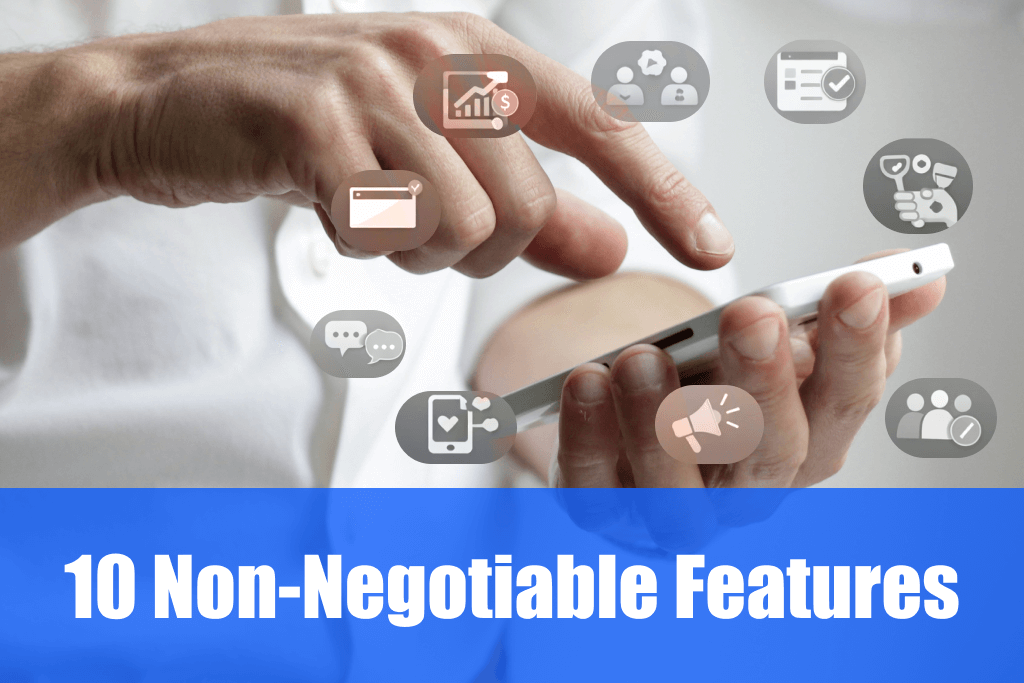While authentic, exact numbers are difficult to get hold of, 'humongous' would be the correct adjective for the current global conference industry. The total number of event organizers is northwards of 48000, with the total number of events hosted annually well more than 450000.
The task of grabbing the target audience's eyeballs and ensuring a uniformly smooth attendee experience often needs to be completed on time by the organizer. Not surprisingly, more and more conference planners are using digital event management platforms to keep everything easy and streamlined. A note of caution over here.
A professional event management solution can provide all the requisite technical expertise - but everything would be a waste unless you have properly optimized assets prepared for the event. In what follows, we will provide some broad tips to prepare great event assets for your upcoming event.
Start Early And Follow A Checklist
The importance of systematic planning for business conferences should be emphasized. To avoid a last-minute rush - and the inevitable stresses and mistakes that will accompany it - start laying down the blueprints of your event around 5 to 6 months before the event dates. Prepare a checklist of all the event-planning tasks you can think of, and tick them off as you proceed. You'll be surprised to find how easy things will become.

Build A Mobile Event App
Earlier this year, a study revealed that event attendees prefer using mobile event apps to view and share content. The report also showed that only around 26% of events have a dedicated smartphone application. For a seamless pre-event, onsite/during-event, and even post-event experience, you should get a user-friendly, dynamic, and information-rich event application created. Look up for an app/software that is specially designed for your type of event, like non-profit event needs a non-profit planning software.
If you work with an event management vendor, the latter will give you a DIY event app builder service. The social engagement and attendee interactions at your event will get a massive boost, making the app one of your most important digital assets.
Get The Event Website Up And Running
It's all very well to create a nice conference app - but there will always be a section (often a fairly significant one) of the audience that will prefer to use their web browsers to join the event. This is all the more important for the virtual events happening during these troubled times of COVID-19.
Make sure you design a fast and fully responsive event website/event web portal - which people can use to join your online event (apart from the option of joining through the app). Once again, most event management tools can automatically create the event's web portal. Make sure you inquire about it.
Prepare The Perfect Visual Assets
From the logo and cover images of your events to speaker images, sponsor logos, and images for social media - there are many visual assets and resources of your event that you need to optimize. Remember, a blurred or stretched image OR an injudicious use of colors can create a negative impression among the attendees about your upcoming event.
On the Eventify platform, the recommended sizes of all visual assets are provided. You can use these as reference: Event Icon → 256x256 (PNG)Event Cover Image → 840x480Exhibitor Logo → 400x220Sponsor Logo → 350x200News Cover Image → 350x200In addition, make sure that the images you share on your Facebook, Instagram, Twitter, and other social media channels are optimized and visually appealing. Never forget this - the first step for organizing a 'good event' is to set up a 'good-looking event.'

Get More Out Of Social Media
The importance of social media tools for organizing an event is constantly increasing. Look for ways to incorporate your organization's/event's social media feed on the event website AND the mobile event app.
The objective here should be to let the attendees get the maximum possible chances to engage with your social posts. You can even consider fetching and displaying all Twitter/Instagram posts with your event's hashtag(s). That way, you can keep track of all the conversations about your event taking place in the social space.
Select the Best Videoconferencing Platform For Your Event
The sessions of any event can contain videos. Thanks to the coronavirus pandemic - the demand for virtual events & conferences is at an all-time high, and that's precisely where the role of the different videoconferencing tools comes to the fore.
Depending on your precise requirements, budgets, and how the sessions should be set up, you can go with Zoom, Vimeo, WebinarJam, Microsoft Teams, YouTube Live, Facebook Live, and others. Certain conference management service providers offer their built-in videoconferencing platform as part of their packages.
Note that the platform you choose must smoothly integrate with your overall event management tool.
Protect Your In-Event Assets
The session videos, speaker PDFs, and sponsor documents - all of these are premium assets of your event, right? It would help if you ensured that registered/authorized attendees could access them easily - on both the mobile and web platforms.
Only authorized people should be able to get their hands on these resources. Talk with the tech partner of your event regarding how to share these assets and the best way to protect these from unauthorized views/downloads. It's your event - you must consider the privacy and accessibility parameters.
Choose a Ticketing Platform Wisely
From where does the bulk of revenues from a business event come in? That's right - through ticket sales. However, the net flow of revenue can be significantly affected if you use a ticketing platform with a hefty percentage-based fee (added on to a fixed charge).
Make it a point to compare through multiple such platforms, explore the feature, reliability, security, availability, and fees of each - and then make an informed choice. Selecting a ticketing platform with a flat fee (no percentages at all), just like Eventify, would be a great idea (if you have free tickets or open registration, there should not be any fee associated with those).
If you have discount coupon codes, make sure they are being used wisely. Keep the ticketing fees from eating into the revenues generated from ticket sales.
Take Good Care of Your Audience
People are the biggest asset of any event. Deliver a sub-par attendee experience, and the risks of poor reviews and participant feedback become very real. It would help if you focused on delivering a well-rounded event experience to everyone.
From attending sessions and participating in Live Q&A sessions and Live Polls to social media engagements, getting into the private social network of the event, and receiving push notifications/emails, people should not face difficulties at any stage.
You can also consider tracking real-time user-behavior analytics and logs. Let people rate your event and its sessions. These will serve as valuable pointers when planning your next event.
Follow Your Budget
It takes big money to organize a trade conference; there are no two ways about this. Planners need to maintain the correct balance between splurging too much and cutting corners to save some money. Look for an event management platform with all the features you need (app builder, networking, live q&a, live polls, webinar support, etc.)
AND has competitively-priced packages. Many organizers also need to start using multiple platforms simultaneously for different functionalities (say, one for the event app, another for networking, and another for Live Q&A). Instead, go for ONE end-to-end platform that has all the capabilities. You will get everything - a fraction of what you would have spent otherwise.
.jpeg)
Make Your Brand Stand Out
Organizing an event gives you powerful scopes to enhance your business's brand visibility and recall values. While designing the events icon and cover images, selecting the event app's theme color, and choosing the visual elements of the event's web portal, ensure your brand elements are properly reflected.
Set up email copies and social media posts in the same manner. It's all about trying to get everyone familiar with your brand. By the end of 2026, the value of the global events sector was expected to touch $2250 billion. While COVID-19 has arrived as a major roadblock, the industry will continue to grow exponentially over the next few years.
Most of the time, the onus is on the organizer to capture the attention of potential attendees (who might have decided to participate in another similar event) and turn them into actual participants. Having high-quality, fully optimized assets for your event is crucial for that to happen.







.png)
.jpg)





